Google, Apple, Facebook and Amazon: where do the big four go from here?
Are you ready to commit to your new GoogleLife?
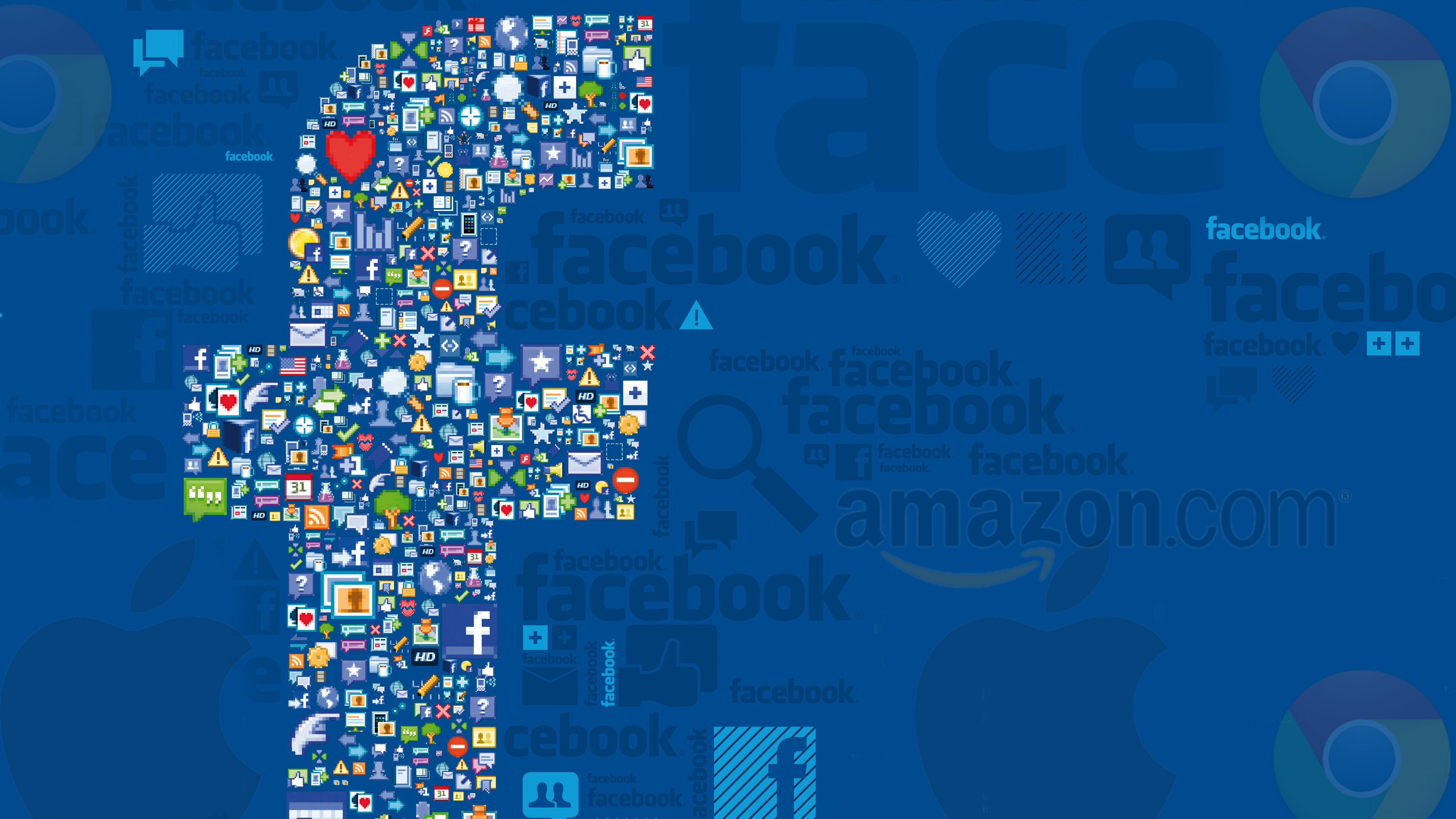
Search engines, social media and text messages are history. The major 'walled gardens' of the the internet are developing fast, but all of the big four are betting on various visions of the future. Will the next big things be home automation, virtual reality social networking … or something else entirely?
With two-thirds of the world's population not yet online, what happens next to the internet is truly up for grabs.
1 Google
"Google is thinking of mobile in a much broader manner," says Aaron Goldman, CMO of Kenshoo, and author of Everything I Know About Marketing I Learned From Google.
"It's not just about phones and tablets. It's about devices in your home, such as Nest, in your car – such as Waze and Android OS in navigational systems – as well as on your face with Google Glass."
Glass, Android Wear & Google Fit
Last year everyone was obsessed with Google Glass before a collective fear of a loss of privacy took hold. The smart glass now seems destined for a life as a speciality product used as a rather boring work tool, though that hasn't stopped a Google Glass 2 going into development.
Will it run on Android Wear? Although Google will release its own smart watch, the master plan behind Android Wear is creating this new operating system, complete with built-in access to Google Now contextual features and voice commands, Google search, and probably Gmail, too. With products due from HTC, Samsung, Asus, Motorola and LG, Android Wear could be a way-in to the future of how we all interact with gadgets.
You should also expect a layer of cloud-powered sporty goodness called Google Fit, an app that will provide those all-important stats on steps, heart rate and calories that we all simply must have access to. Or not.
Get daily insight, inspiration and deals in your inbox
Sign up for breaking news, reviews, opinion, top tech deals, and more.
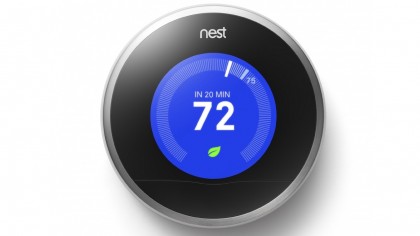
Home automation & navigation
Yes, the internet of things is here and Google wants to be part of it. Whether your home and your car run on Android, iOS or something else is a decision that looms in all of our futures. Google's acquisition of Nest and its smart thermostat and smoke alarm products is more a signal of intent that a concept in its own right. Its Android@Home initiative is likely to expand into Google Home, or something similar, that creates a smart dashboard for homes. As an app, obviously.
Google is covering all of the bases here; it's also interested in robotics and artificial intelligence.
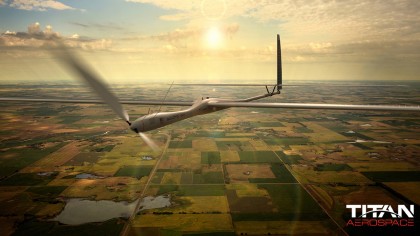
Google X
Google has big money and big plans, and some of them are probably nonsense. There's a reason Google X, is called the 'moonshot factory'.
On the sensible side comes a Google Maps upgrade: just this month it acquired Skybox Imaging, the company responsible for Google Maps' images, and Google have also opened talks with Virgin Galactic about getting mapping satellites into orbit.
As well as improving Google Maps – something its acquisition of social mapping app Waze is now doing – it could also become part of Google's drive to increase internet access in rural and remote areas of the globe. So far those ambitions come under Project Loon, a bizarre concept to put a network of Wi-Fi balloons at the edge of space to help fill coverage gaps, and bring people back online after disasters. However, with its purchase of solar-powered drone maker Titan Aerospace it could possibly get off the ground.
Other projects to come out of Google X include Calico which focuses on tackling ageing and illness with technology, and a patent application for smart contact lenses with camera sensors embedded inside.
2 Facebook
It may have tried and failed with its Facebook Home OS layer for Android phones, but there are precious few products and service that Facebook doesn't want to offer its 1.28 billion monthly users.
Voice
By adding voice WhatsApp could be huge across the globe. "It will disrupt mobile telephony like Skype did. By integrating a platform like WhatsApp into Facebook, the new owners have a real deep-reach into the day-to-day communications of users," says entrepreneur and strategist Vikas Shah, President, TiE Manchester. "WhatsApp was one of the few 'off platform' ways people did this, and that's important."
Facebook is also creating its own version of SnapChat called Slingshot, which could become a valuable mobile business tool.
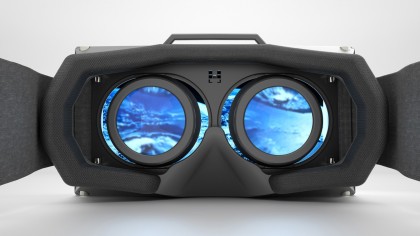
Virtual reality social networks
Facebook is also thinking about the next major computing platform. Why else would it have bought virtual reality headset maker Oculus Rift? "Unlike mobile, which was not seen as core to the Facebook story, virtual reality is set to be central to its ambitions," says Dave Wallace, CEO of digital agency Heath Wallace. "Imagine being able to step inside a social space, with a virtual representation of yourself, and going to meet others – it certainly has appeal," he says.
Money transfer
Banking is also in Facebook's future, with the money transfer market rumoured to be on the company's to-do list. "Going after the money transfer market could help Facebook gain access to payment information on a huge number of users while also extending the network's presence in emerging markets," says Patrick Salyer, CEO of social media infrastructure company Gigya. However, he points out that to succeed Facebook will need to find a unique model that differentiates from money transfer providers like PayPal or Western Union.
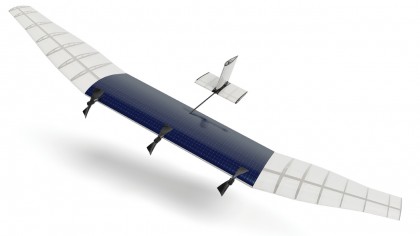
Connectivity Lab
Money transfers are a way of getting people locked-in to Facebook on smartphones, but what if there's no phone signal? Cue the Connectivity Lab. "In most countries Facebook is the internet," says Lorry Destainville, Head of Product Development at Glow. "If users are far from phone relays, Facebook may deploy internet network via drones, so that these users want to start accessing the web." File next to Google's Project Loon.
3 Amazon
Amazon is no longer just a place to buy books. Its brazen attempt to get people to pay a monthly Amazon Prime fee to use its services seems to have worked (thanks in part to Amazon Prime Instant Video), and we're on the cusp of Amazon being integral to some people's daily lives and habits.
It cleared-up in the e-books market with its Kindle, but there's much more emphasis on the Amazon ecosystem in its follow-up Kindle Fire tablets. It's no surprise that Amazon is putting more of its hardware into the market; for now we've got Amazon Fire TV, Amazon Prime Instant Video and – soon – Amazon Prime Music, but what comes next?
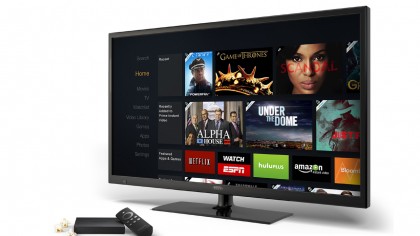
Amazon Fire Phone
Here comes Amazon's 'missing link', the 4.7-inch Fire Phone that's all about tying-in owners to Amazon services. The Amazon Appstore now hosts 240,000 apps and games available in almost 200 countries, and its first handset will boast a glasses-free 3D screen. That novelty might wake-up the dozing smartphone market, but this is about Amazon popularising its locked-in platform while also breaking free from its website-only retail model. The Fire Phone is a gateway to Amazon's digital content library, with the likes of the Kindle Store, Audible, Kindle Newsstand and its newly acquired Comixology service embedded. It's all about popularising Prime; members will get unlimited streaming access to music, movies and TV.

Prime Air
Having taken a chunk of business from high street shops, Amazon now wants to put the postman out of work, too. An air delivery system that would deliver orders in just 30 minutes, Prime Air is a fleet of autonomous octocopters that can deliver 86 per cent of Amazon deliveries – as long as there's a warehouse 10 miles away.
Amazon's Jeff Bezos has plans to go even higher; his Blue Origins private spaceflight company has its own hydrogen-fuelled rockets and has ambitions to lower the cost of spaceflight. It could begin to make suborbital flights in 2018, both for space tourists and astronauts visiting the International Space Station.
4 Apple
It's hard to know exactly what Apple thinks will be the next big thing since it is so massively secretive. But with its trend-setter position gone, Apple is quickly becoming a follower, with its iPhone 5S & 5C split and Apple's acquisition of Beats the evidence.
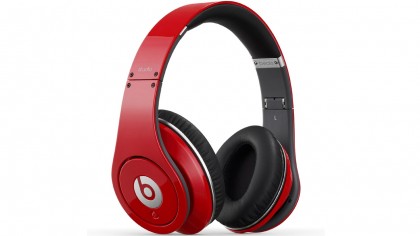
iCloud Drive & iOS8
Apple's OS X 10.10 Yosemite announcement is small-fry in the world of the Big Four, but the updates to iOS8 and especially iCloud Drive should allow Apple to catch-up with rivals Dropbox and Google Drive. As well as allowing 5GB email attachments called MailDrop, the storage available will be much larger than the current tiny limits.
Gesture & motion tech
November saw Apple acquire PrimeSense, an Israeli company whose motion tech was used in the first version of Microsoft's Xbox Kinect. Is this for Apple iTV, the iWatch or a future iteration of the iPhone?
- Check out our hands on review of the now Facebook owned Oculus Rift
Jamie is a freelance tech, travel and space journalist based in the UK. He’s been writing regularly for Techradar since it was launched in 2008 and also writes regularly for Forbes, The Telegraph, the South China Morning Post, Sky & Telescope and the Sky At Night magazine as well as other Future titles T3, Digital Camera World, All About Space and Space.com. He also edits two of his own websites, TravGear.com and WhenIsTheNextEclipse.com that reflect his obsession with travel gear and solar eclipse travel. He is the author of A Stargazing Program For Beginners (Springer, 2015),
